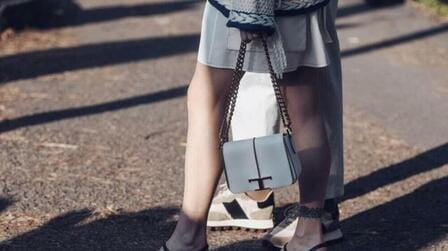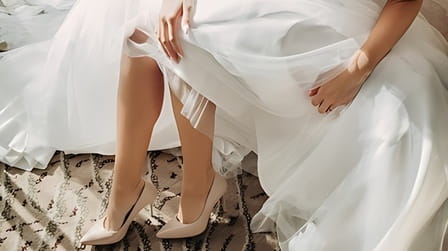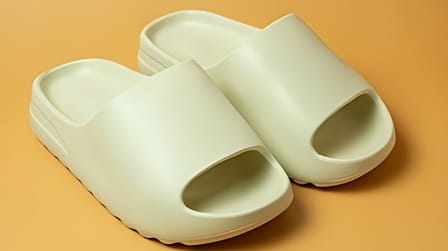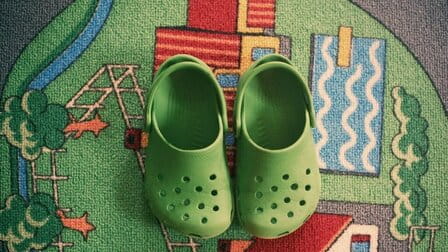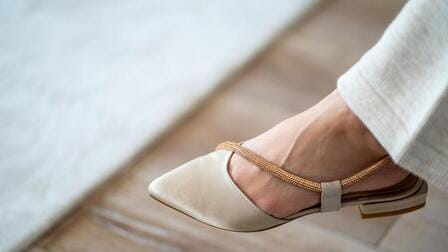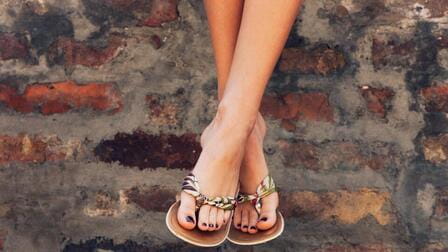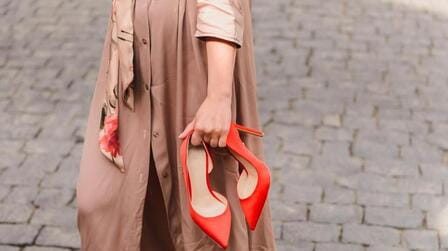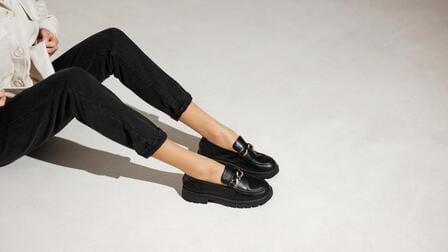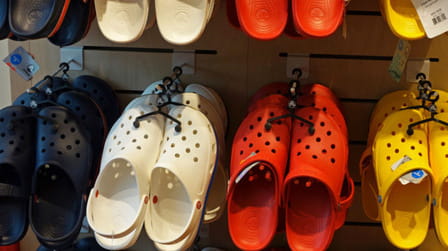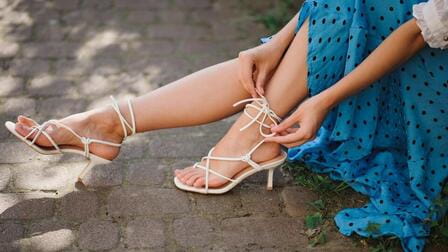Flip flops, also known as thongs or slippers, are a type of open-toed sandal popular in warm climates. They usually consist of a flat sole held loosely on the foot by a Y-shaped strap that passes between the first and second toes and around both sides of the foot. Flip flops are known for being comfortable, casual, and easy to slip on and off. However, they also have a reputation for being informal attire. This raises the question: is it acceptable to wear flip flops in Japan?
Cultural Norms Around Footwear in Japan
In Japan, there are cultural norms and etiquette rules around footwear that are good to be aware of. Removing shoes before entering homes and certain buildings or rooms is customary. The tradition stems from cleanliness and dates back centuries. It is seen as polite to take off one's shoes before entering sacred places as a sign of respect. Most homes in Japan expect guests to remove their shoes upon entering and wear provided slippers instead.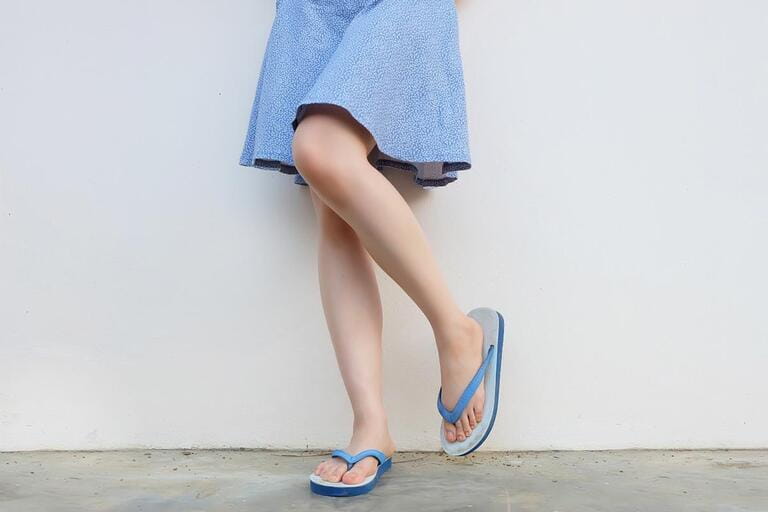
Public places like schools, hotels, and stores will often have shoe lockers or shelves where customers switch their outdoor shoes for slippers. Even some restaurants require patrons to remove their shoes. The cultural norm is to keep floors clean by not tracking in dirt and debris from outside.
So wearing outdoor footwear inside is not the norm. However, flip flops do toe the line between indoor and outdoor shoes. They are open and expose feet while being casual.
Are Flip Flops Considered Too Informal?
In Japan, wearing flip flops may be seen as overly casual or informal in certain situations. Just as wearing sneakers to a formal business meeting would not be appropriate in many cultures, wearing flip flops to formal events, upscale venues, or professional settings may go against etiquette norms in Japan.
Factoring in the cultural emphasis on removing outdoor shoes, flip flops are probably not the ideal footwear choice for such contexts. They are designed for casual comfort after all. Leather dress shoes or heels would be far more fitting for formalwear.
That said, flip flops are not outright prohibited or taboo in Japan either. It depends a lot on the specific context and situation.
Where Flip Flops May or May Not be Acceptable
While a nice restaurant, formal ceremony, or professional workplace might frown on flip flops, there are many casual scenarios where they do fit in. Here are some guidelines for when wearing flip flops may or may not be acceptable in Japan:
Casual, everyday activities - Running errands, shopping at casual stores, taking a walk around the neighborhood or park, or going to a casual eatery or cafe are situations where flip flops would generally be fine to wear in Japan. They fit the casual dress code and help keep feet cool and comfortable.
At the beach or pool - Flip flops are quite popular footwear choices for the beach, pool, or locker room environments in Japan. Here, they make practical sense to easily slip on and off.
As house slippers or guest slippers - Many Japanese homes provide slippers for household members and guests to wear indoors and swap with their outdoor shoes. Basic flip flop styles are commonly used as indoor slippers, so wearing them in that context is fine.
At a close friend's home - When visiting a close friend's home casually, it is often acceptable to keep flip flops on instead of swapping to house slippers. But be sure to observe the host's preferences.
Exercising outdoors - Going for a jog, walk, or exercise session outdoors? Flip flops are practical and popular footwear for these activities in Japan.
At casual eateries - At casual dining spots like noodle shops, diners, food stands, or fast food joints, flip flops do not stand out as inappropriate, though some establishments still prefer patrons to remove shoes.
In dormitories or locker rooms - In youth hostels, dormitories, campgrounds, gyms, or locker rooms, flip flops are standard footwear of choice when noise needs to be kept to a minimum.
At festivals or summer events - Outdoor summer festivals and events in Japan often attract attendees wearing flip flops for comfort in the heat and humidity. They blend right in.
On the other hand, flip flops would be considered too casual for formal events, business contexts, upscale venues, sacred places, or situations where shoes usually must be removed. It is safest to avoid wearing flip flops in ambiguous cases where formality could be expected. But the norms are loosening over time, especially among youth culture.
General Tips on Wearing Flip Flops in Japan
If you do decide to wear flip flops in Japan when out and about, keep these general tips in mind:
- Read the dress code before entering establishments when possible and check for signs requesting shoe removal. Be prepared to remove flip flops or pack other shoes.
- Bring a pair of socks in your bag. At certain places like temples, you may need to remove flip flops and walk barefoot or in socks.
- Wash feet thoroughly before wearing flip flops without socks to avoid offending others.
- If unsure what footwear is appropriate, opt for conservative shoes instead of very casual sandals. It is better to be overdressed than underdressed.
- Be prepared to take flip flops off and carry them into places requiring bare feet or socks.
- If wearing flip flops, choose a nicer pair - not old, worn out ones. Look for leather rather than plastic styles.
- Don't wear flip flops to business meetings, unless explicitly told the dress will be super casual. They scream leisure.
- Break flip flops in before a trip to avoid blisters. New stiff pairs can really rub the skin raw.
With the right pair of flip flops and some consideration for contexts, wearing flip flops should not pose much issue in Japan. They are great for staying comfortable in the summer heat. Just be prepared to kick them off when entering homes or remove them as needed. With the causal trend, flip flops may become more ubiquitous over time, but it pays to follow norms.
Conclusion
While wearing flip flops is commonplace in casual contexts in Japan, there are situations where they would still be considered overly informal. The cultural norms of removing outdoor shoes before entering homes or buildings are important to keep in mind as well. When in doubt, opt for more formal shoes instead of very casual flip flops in Japan. But for everyday casual activities, especially in summer, flip flops remain sensible, popular, and generally acceptable footwear. Just be ready to remove them as needed and follow any posted rules or requests. With some care and common sense, flip flops can certainly be worn in many situations in modern Japan without breaking any taboos.
